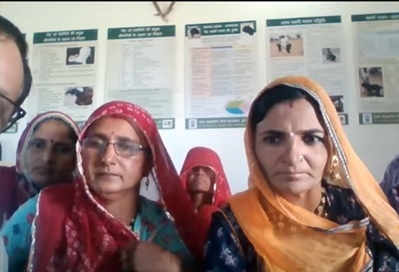S&T intervention paved way for women empowerment in Barmer
Details:
The Wadi programme proved boon for thousands of villagers in the arid district Barmer. It provides the green cover, fodder for cattle (goats) and other market-ready products like fruits and has generated livelihood.
“Earlier, women were not allowed to step out of their homes. But after the SHG was constituted, meetings were conducted, training was provided and the scenario changed. Women now go to markets, Panchayat and conduct meetings,” Kamala Chaudhry, Ram Devera Mahila Community Group, village Rani Gaon, Barmer, Rajasthan.
Agriculture production and income is most vulnerable in the arid and semi-arid regions of India because of scanty and irregular rainfall, recurrent drought, harsh climate, limited irrigation and limited reach of technologies and advances. The soil is poor, has low organic content, affected by, salinity. Majority of the farmers are growing rainfed crops like, Bajra, Mung bean and Moth bean using traditional methods. Against this backdrop, BAIF Development Research Foundation (www.baif.org.in) with support of DST- SEED – GoI has introduced several Technology- based solutions to enable Sustainable Livelihoods to arid desert communities.
Ram Devera Community Group was trained for tree-based farming system model which include introduction of improved crops of Moong, Moth, Bajra, combined with arid - horticulture tree species/ grafts like Ber (Zizyphus mauritiana), Gunda (Cordia dichotoma) and Pomegranate (Punica granatum). It uses gravity-based drip irrigation system, organic manure and promotes nitrogen-fixing leguminous crops as intercrop on individual land of 1 acre with active participation of local community resource person. The selected specific trees have better ability to tolerate high temperature, drought weather condition and thus helped in generating perennial income.
Principal Investigator: Mr. Sagar Kadao BAIF Development Research Foundation Pune
Contact info: sagarkadao@baif.org.in
Implementing Agency: BAIF Development Research Foundation Pune
Funding Agency: SEED Division, Department of Science and Technology (DST)
